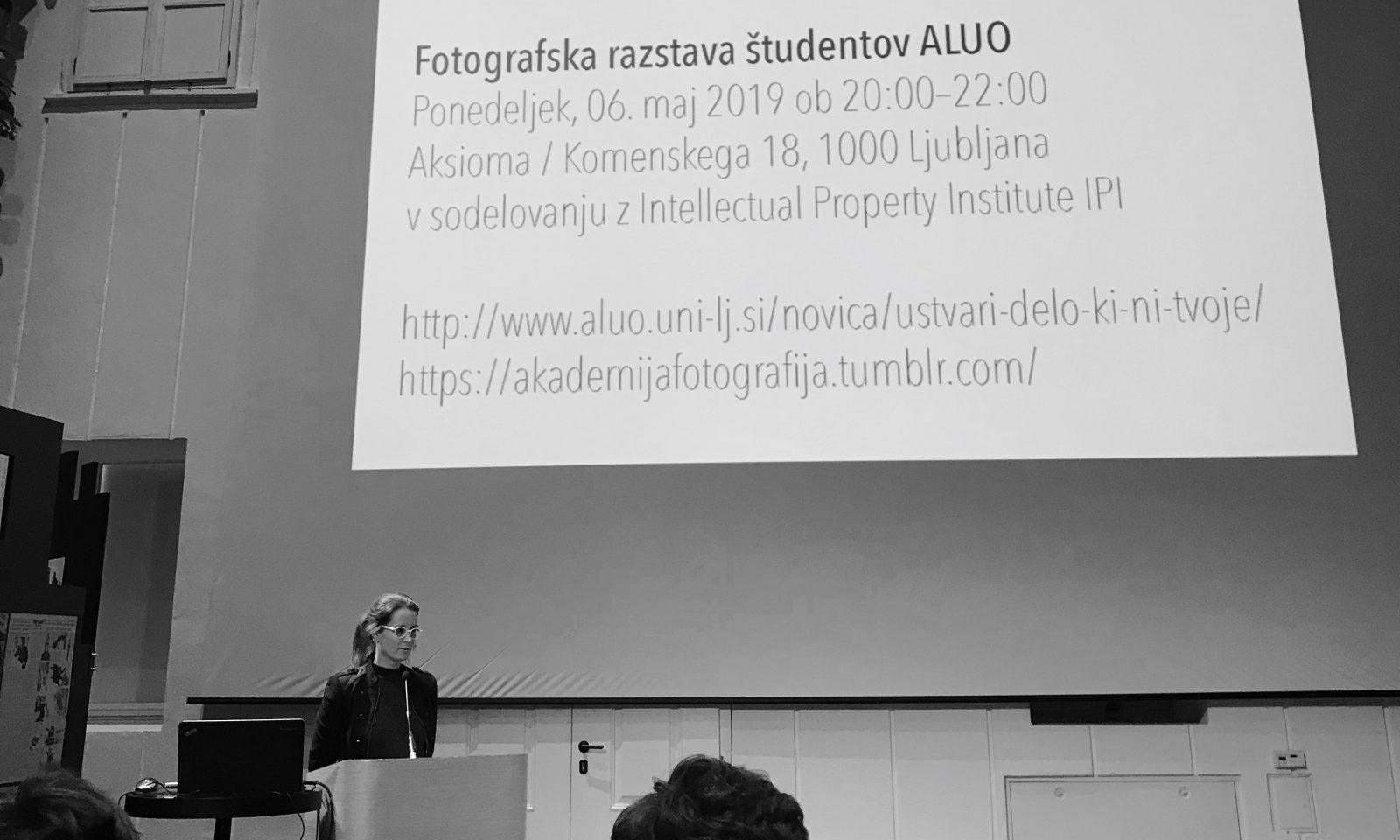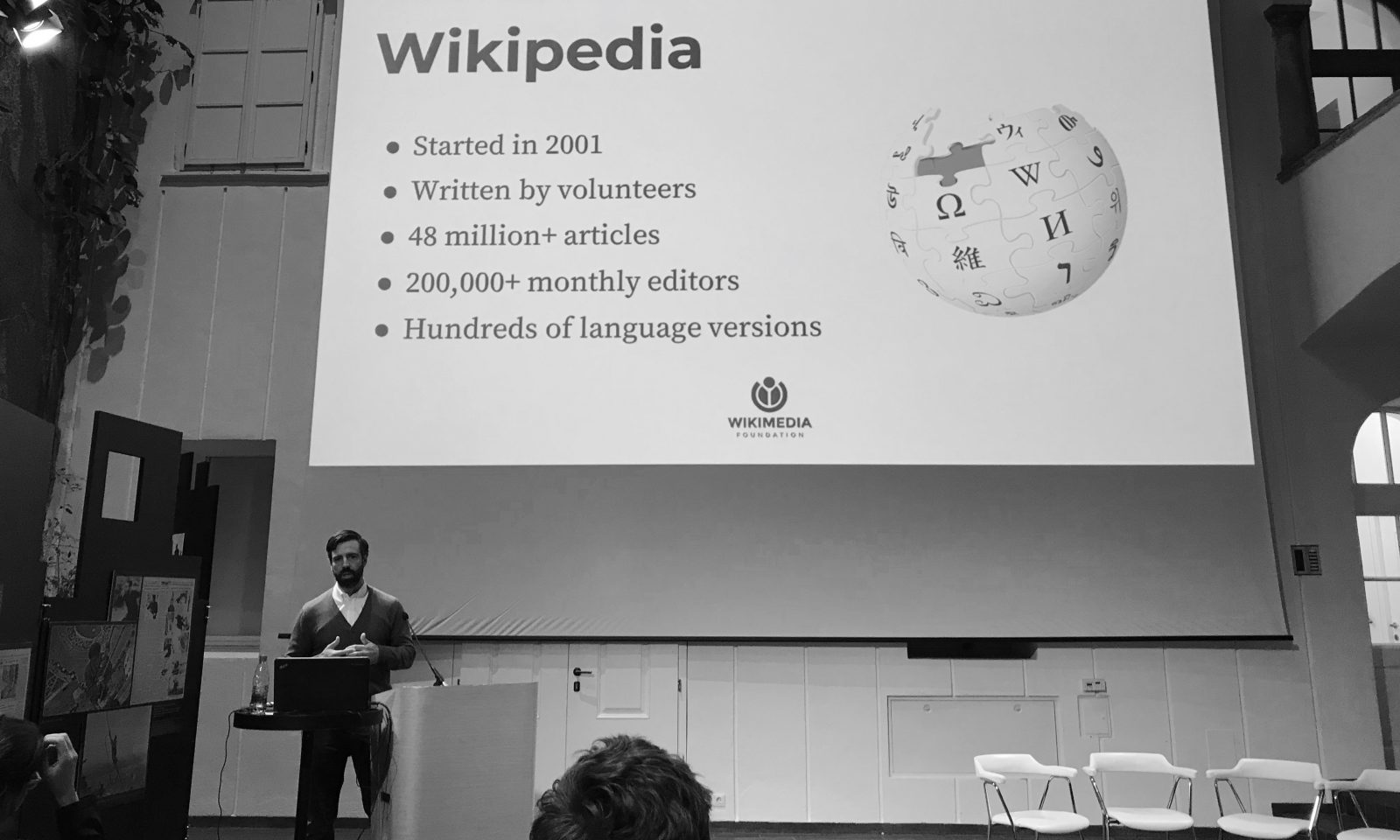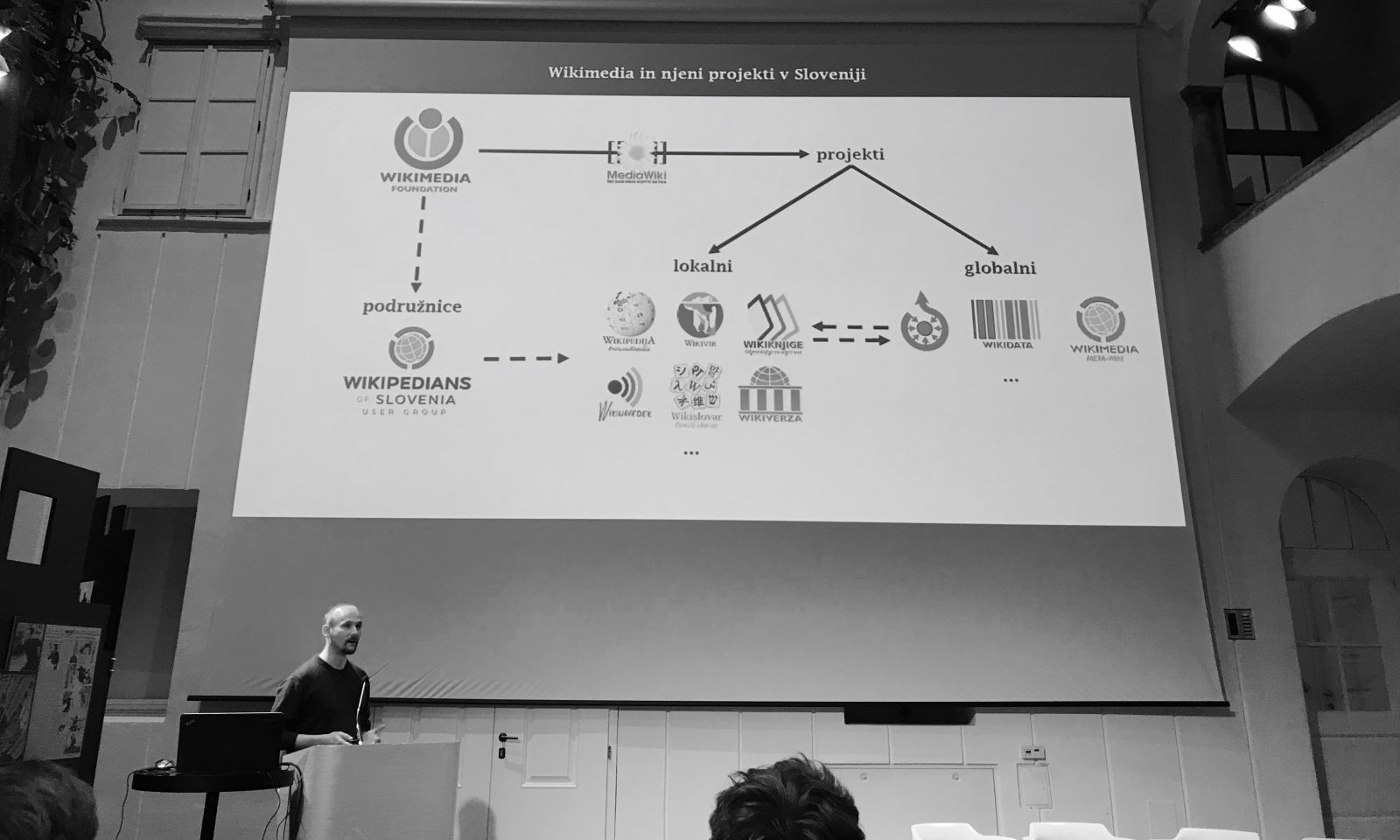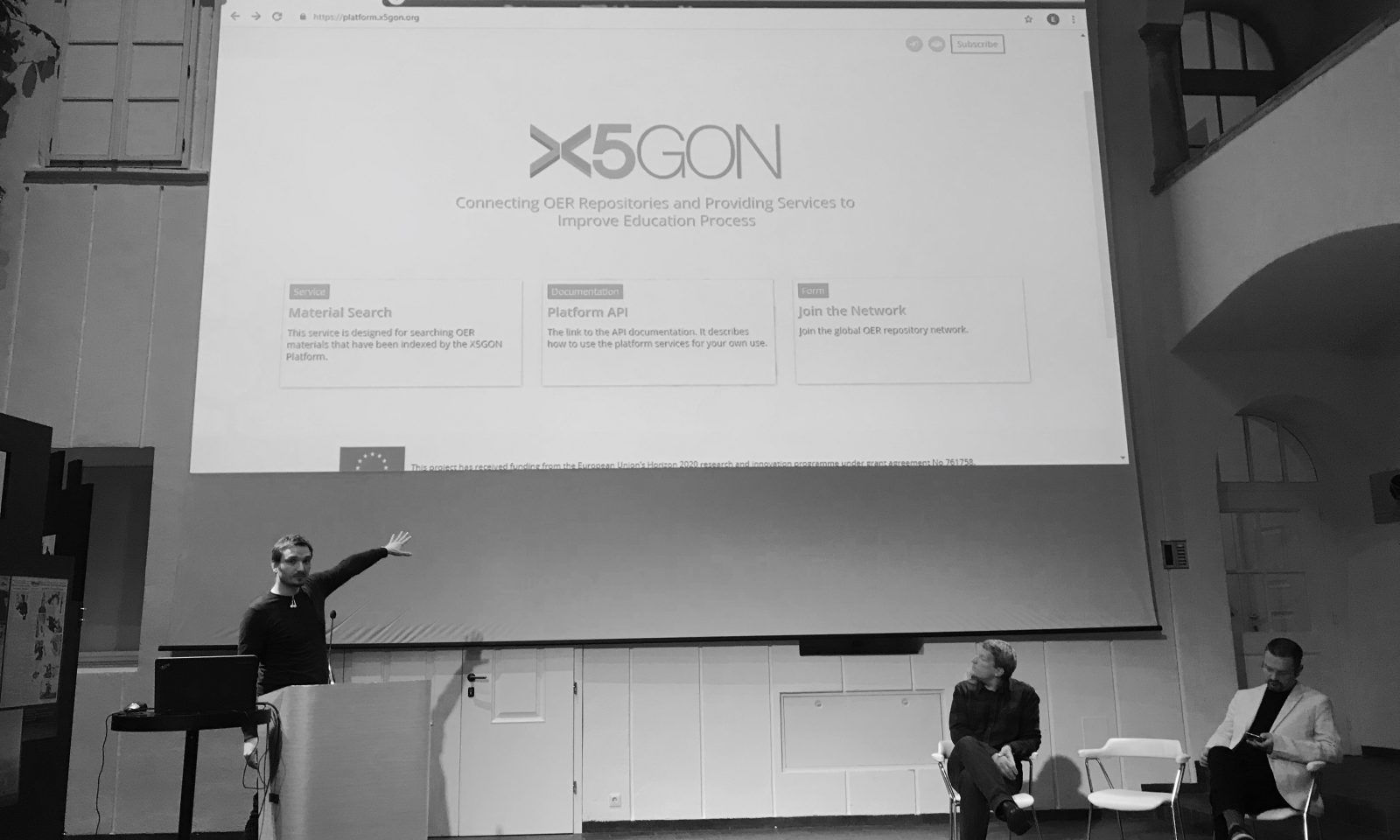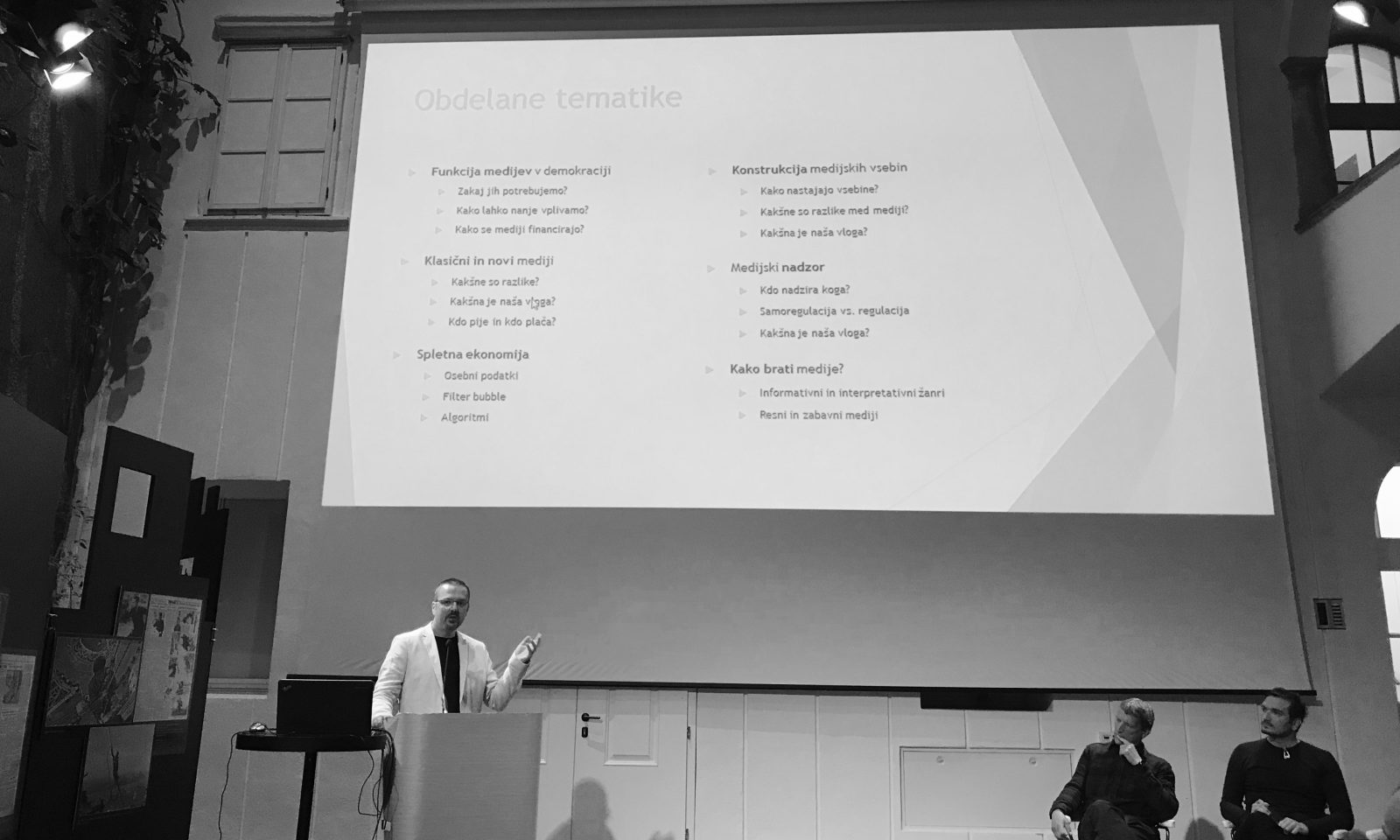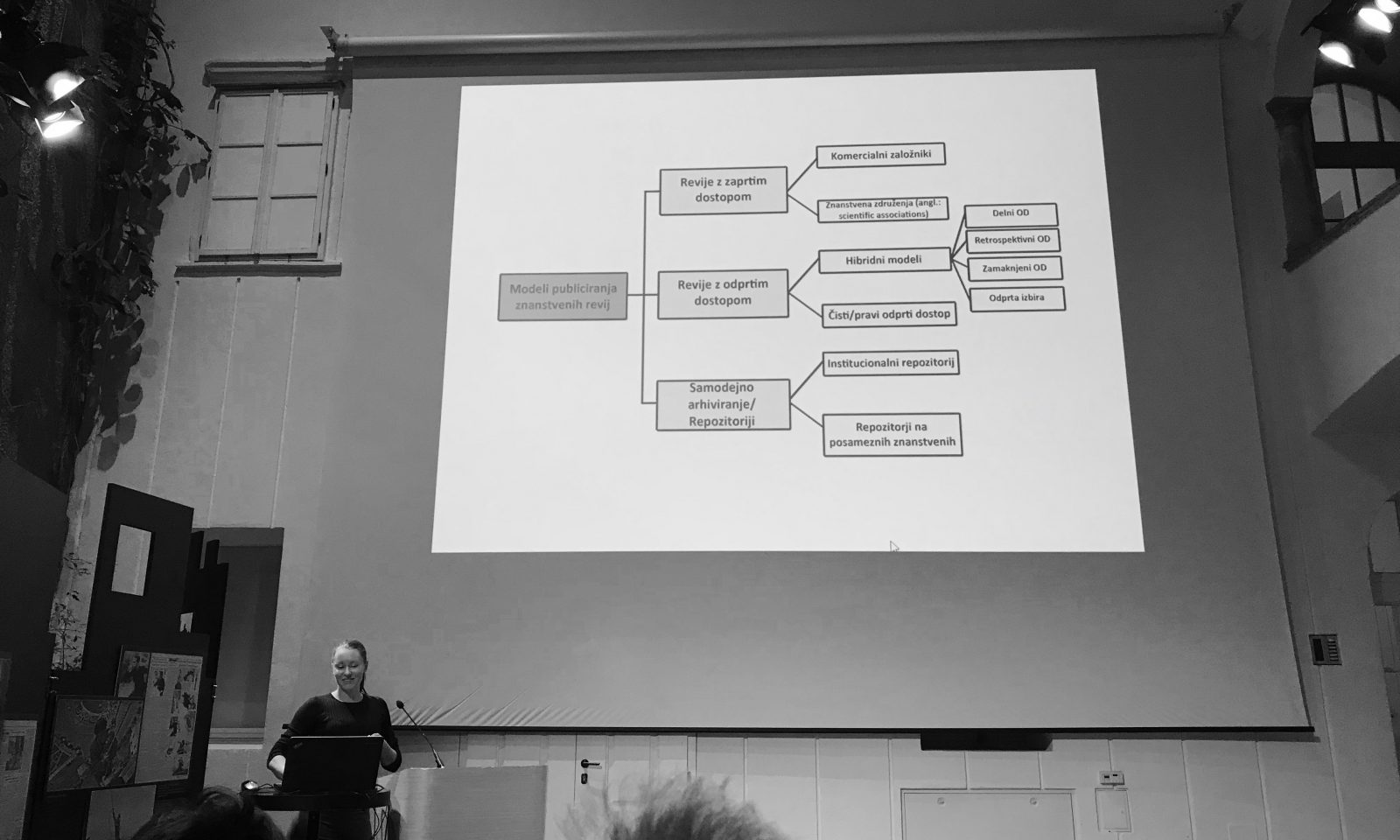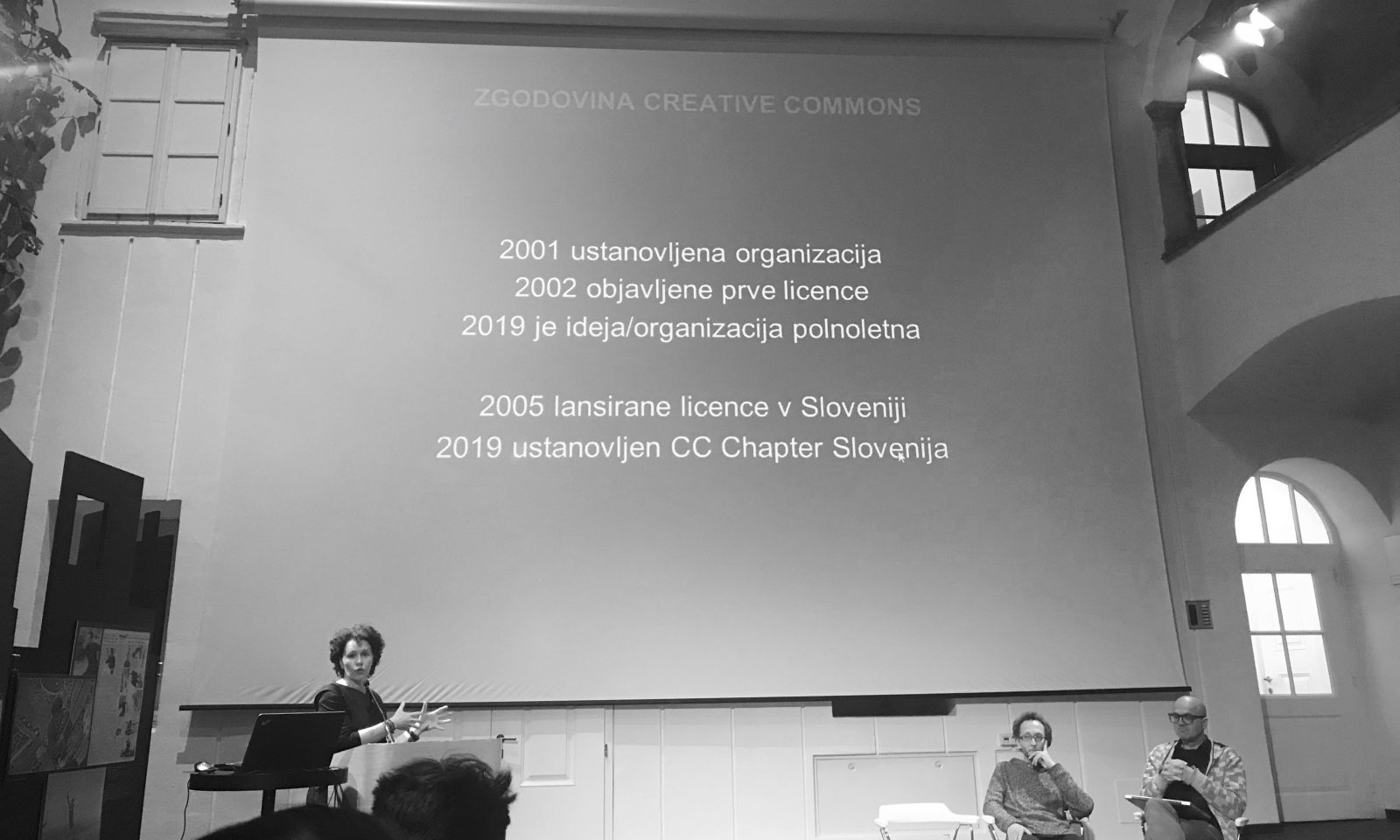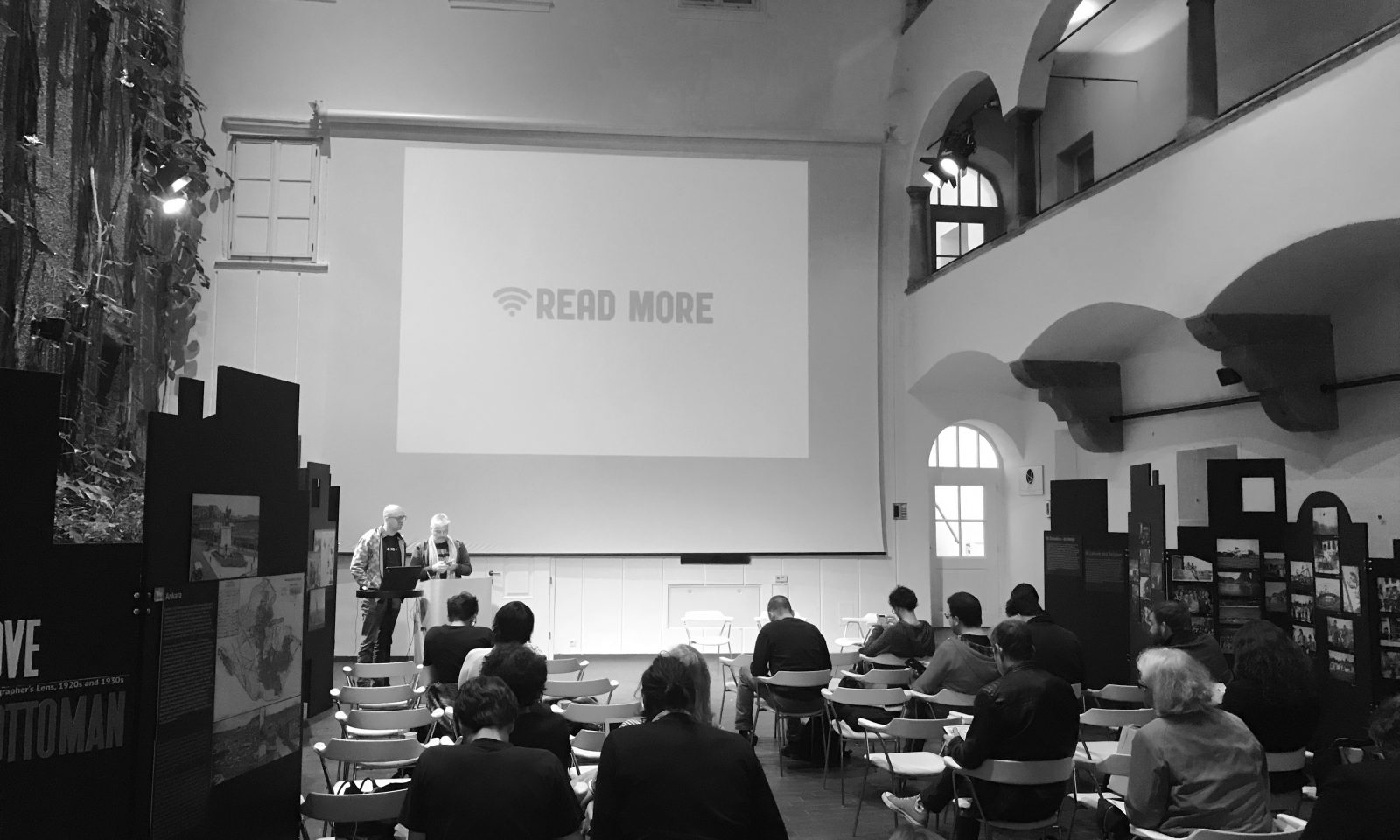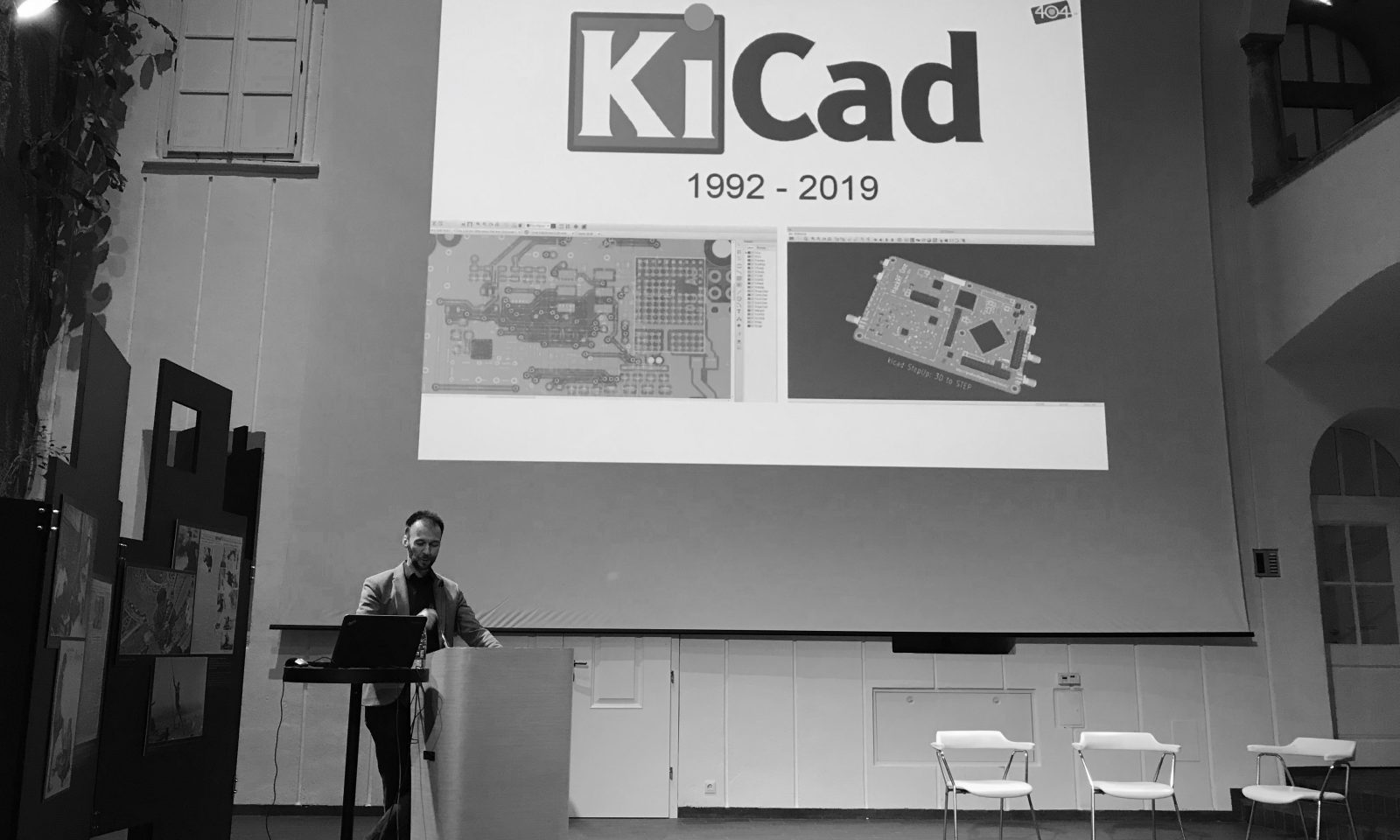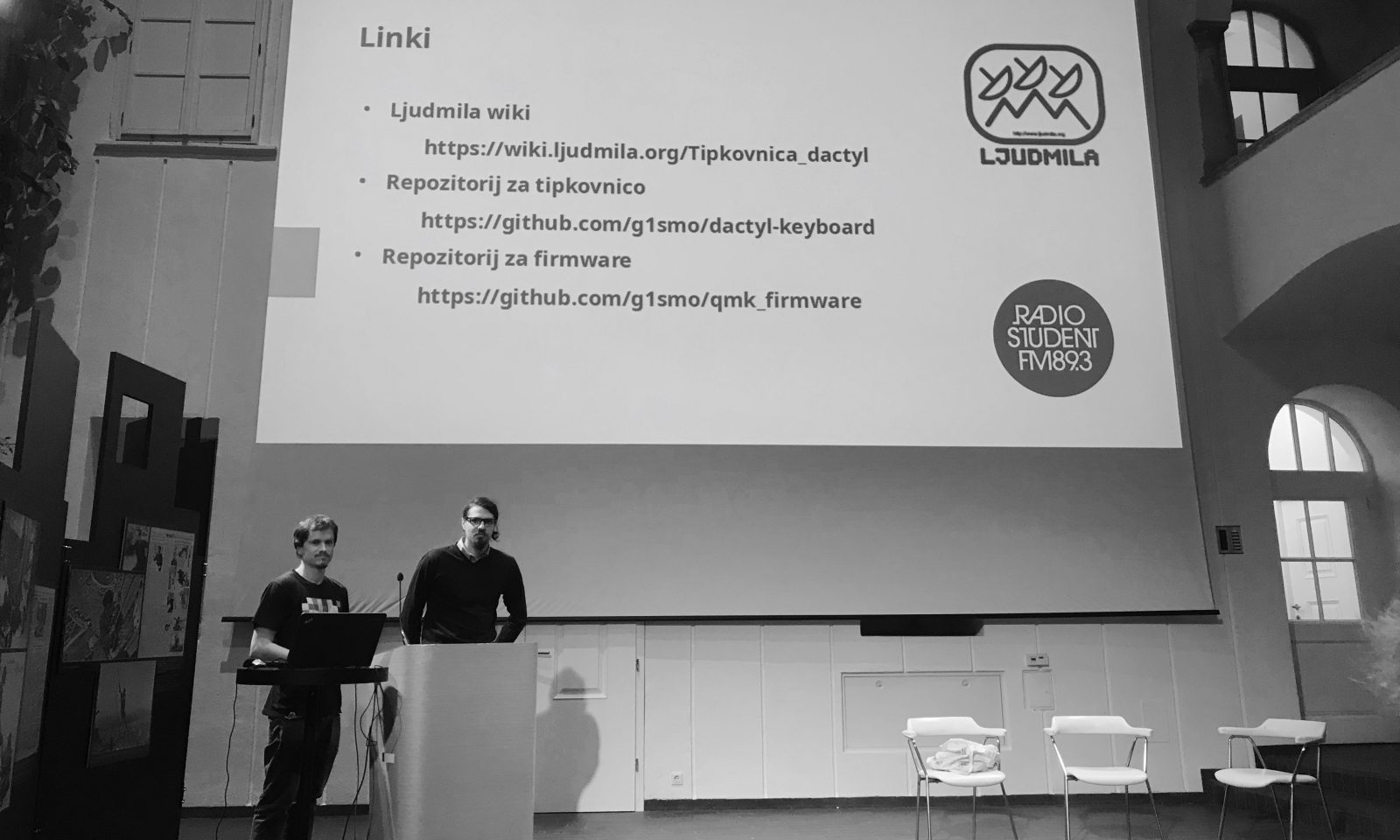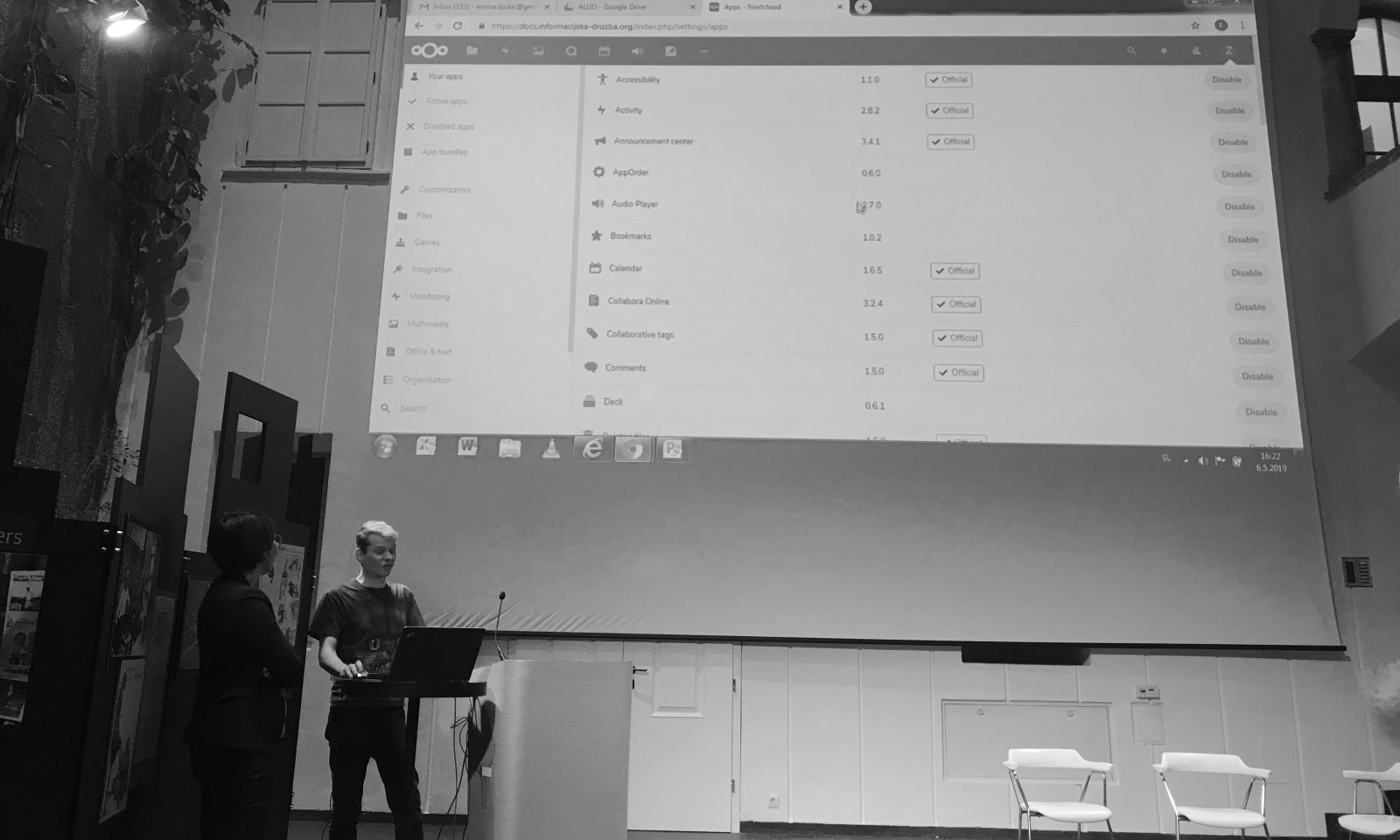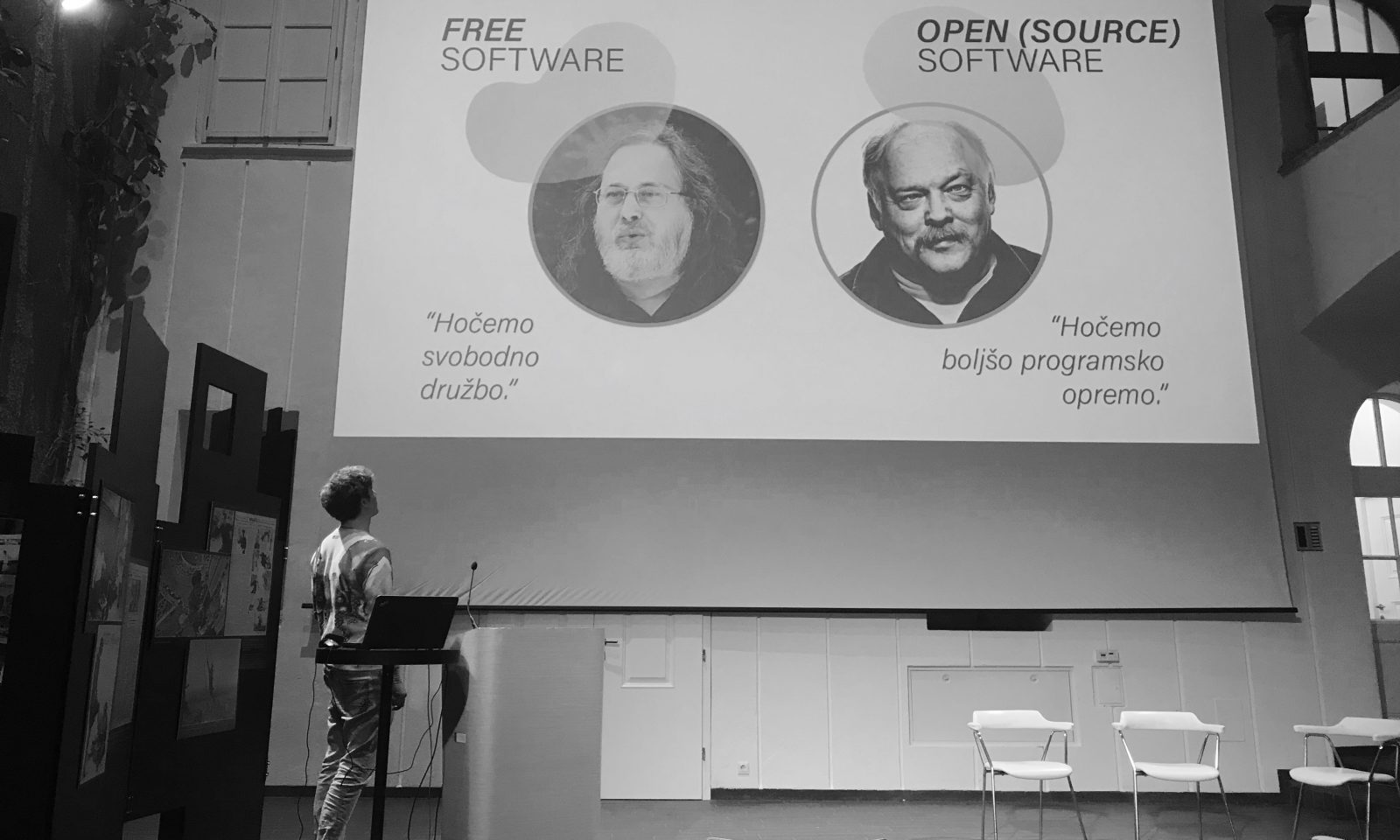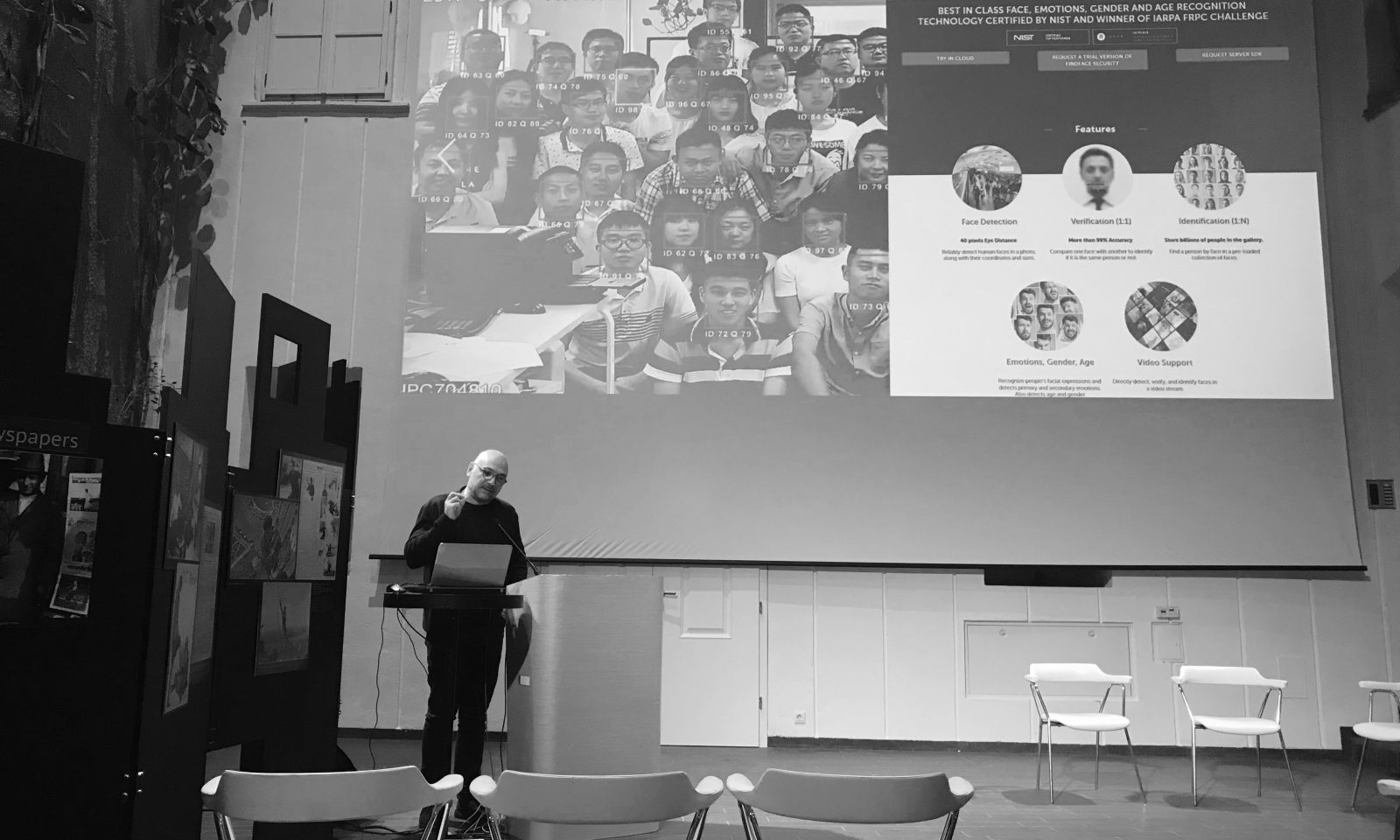Report on the event “Open Knowledge Day”
On the Open Knowledge Day, organized by the Intellectual Property Institute and Today is a new day on 6 May 2019 in the atrium of ARC SAZU, numerous lecturers shared their knowledge on different aspects of open (in the broader sense knowledge, in the narrow sense culture, science, education, hardware and software, data, etc.).
Maja Cimerman (Today is a new day) opened the event, while Filip Dobranić (Today is a new day) and Maja Bogataj Jančič (Intellectual Property Institute) also had some introductory words. The latter stressed that the aim of such events is to stimulate everyone working in the field of open knowledge.
As the first speaker, Emina Djukić (Academy of Fine Arts and Design) presented the exhibition with the paradox title “Create a work that’s not yours”. 33 students from the first and second cycle of Photography on ALUO participated in the project whose aim was to present existing copyrighted works on one side and to stimulate (legitimate) creation of derivative works on the other side. All the works were made available under the Creative Commons (CC) licence BY-NC-SA.
Next was Jan Gerlach (Senior Public Policy Manager, Wikimedia Foundation) with a lecture on open knowledge public policy. He presented the challenges legislators and policy makers face in building an open society and how Wikimedia Foundation helps solving these problems through different projects having working groups and different chapters or rather “subsidiaries” all around the world. Very active is also the Slovenian working group Wikipedia, which was presented by Jernej Polajnar (Wikipedia Slovenia). This open and free encyclopedia was established in 2002, when CC licenses didn’t exist yet. At first its content was made available under the GNU license, while now they it is available under the CC BY-SA licence.
A series of lectures on open education followed. Gašper Hrastelj (Slovenian National Commission for UNESCO) gave a lecture on the process of the adoption of A UNESCO Recommendation on Open Educational Resources (OER). Davor Orlič (UNESCO Chair on Open Technologies for OER and Open Learning, Jožef Stefan Institute) spoke about open education as an optimal way of transferring global knowledge. Domen Savič (Citizen D) presented a project of media literacy for young people.
Katarina Krapež (University of Primorska) talked about open science or rather the possibility of a complete transition to an open system, which is paved with various obstacles. She emphasized that Slovenians publish a lot, but that our scientific and research activity does not have a great influence according to different standards. The Slovenian Quality Assurance Agency for Higher Education (NAKVIS) sees the solution in publishing more in “closed” magazines, which bring greater influence. The Slovenian Research Agency (ARRS), on the other hand, strives towards open access. According to the lecturer, the Ministry of Education, Science and Sport, NAKVIS and ARRS should unify their views on this issue.
Next, Maja Bogataj Jančič (Intellectual Property Institute) gave a lecture on CC licenses and the future of copyright in the framework of open culture. These open licenses, prepared in advance, strike a balance between full control and anarchy in copyright. Because licenses are not an optimal solution, they can not be the only solution, but it is necessary that legislators adopt good and balanced solutions in copyright law, for example with clear and wide exceptions and limitations of copyright in public interest.
Luka Frelih (Ljudmila) presented the Culture.si, a platform of the Ministry of Culture, which facilitates international cooperation in the field of culture. Vuk Ćosić provoked the audience with an interesting question about the social position of society in our society.
Next, Rok Caputer (Zavod 404) presented various projects in the field of open hardware that are being carried out at the institute. As part of the open workshop program, for example, they educate, mentor and consult users, and they make their machinery, tools and equipment available at a very low membership. Lio Novelli and Jurij Podgoršek (Radio Student, Ljudmila) shared their experience with the workshop of DIY mechanical keyboard dactyl. This keyboard was originally designed by Matt Adereth, which made it available under the CC BY-SA license.
Žiga Kranjec (Ljudmila) and Žiga Vrtačič (Today is a new day) discussed open software. The former gave insights into cloud services, alternative to commercial providers such as Google Docs. The latter talked about internet projects performed by Today is a new day on the basis of various open source software. Using open source software saved them a lot of time, while other people are also able to add and upgrade the software they developed. This is why they believe open software benefits individuals, companies and the society as a whole.
Last but not least, Marko Mrakar presented various examples of the use of big data (from smart watches that measure heart rate and body hydration, to smart thermometers that accurately plan energy consumption and robotic vacuum cleaners that scan our houses and how our furniture is positioned). At the end, this stimulated an interesting debate on the ethics of accumulating big data and its use. ”
More about the event and the lecturers on this website. Reports on the event:
– newspaper Večer,
– RTV on the podcast Dogodki in odmevi,
– RTV on the podcast Radio Prvi.
Studio City will report on the event on 3 June 2019.
The Grand Board of the European Union Intellectual Property Office (EUIPO) finally ruled that the figurative sign ‘COVIDIOT’ cannot be registered as an EU trademark.
The 4th Open Knowledge Day took place on Tuesday 17 October 2023, with an accompanying workshop on 18 October 2023. This year it was organised by the Open Data and Intellectual Property Institute (ODIPI) and supported by Knowledge Rights 21 (KR21).
We invite you to the fourth Open Knowledge Day and the workshop, which will take place this year within the framework of the programme and with the support of Knowledge Rights 21. The event will bring together experts from different European countries to discuss two topics: the first part will deal with the legal basis for data analytics, which is a key part of machine learning and related artificial intelligence, and the general exception for research. In the second part, open science in theory and practice will be presented both in Slovenia and in some Western Balkan countries. Representatives of research and educational institutions from Slovenia and the Western Balkan countries, as well as interested members of the public, are invited to attend.
Dr. Maja Bogataj Jančič, a renowned expert in copyright law, has joined the Berkman Klein Center for Internet & Society at Harvard University, where she will serve as an affiliate researcher for the next two years.

